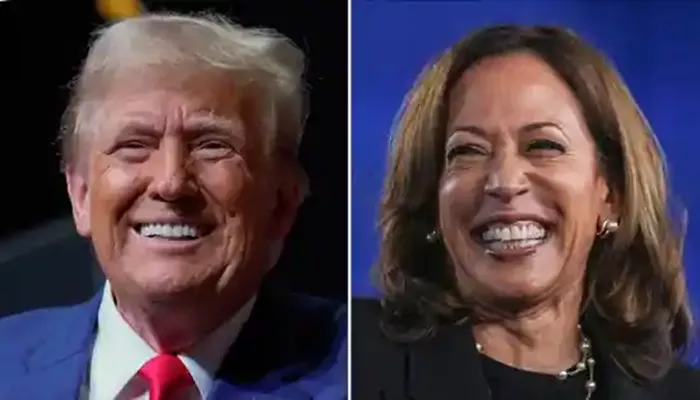As the United States gears up for the presidential election on Tuesday, November 5, 2024, one key issue drawing attention is the future of the H-1B visa program, particularly its impact on IT companies that rely on it to send employees to the US. The annual allotment of 85,000 H-1B visas has become a point of debate, with differing views from potential candidates on how they would handle the program.
What is the H-1B Visa?
The H-1B visa is a non-immigrant visa that enables US companies to hire foreign workers in specialty fields such as science, technology, engineering, mathematics (STEM), and information technology (IT). Companies like Tata Consultancy Services (TCS), Infosys, HCL Technologies, and Wipro depend on this visa to staff their US operations. However, these firms also rely heavily on US-based clients, with more than 50% of their revenue coming from the American market.
Potential Changes Under Kamala Harris
Kamala Harris, the current Vice President, has been a proponent of open immigration policies. She has supported the continuation of work authorization for spouses of H-1B visa holders and has been a vocal advocate for removing country-specific caps for green cards. During her 2019 presidential campaign, Harris endorsed lifting the country-specific caps on employment-based green cards for H-1B workers. Her campaign statement emphasized the need to eliminate discriminatory backlogs and allow immigrant workers to continue contributing to the US economy.
While Harris’ stance on H-1B visas suggests a more moderate approach, she has not made definitive statements on altering the annual allotment of these visas. Experts like Poorvi Chothani, founder of immigration law firm LawQuest, suggest that while changes could occur, Harris is unlikely to make drastic alterations to the H-1B program.
Donald Trump’s Stance on H-1B Visas
Former President Donald Trump, on the other hand, has a more contentious history with the H-1B visa. He has previously described the program as “very bad” and “unfair” to US workers. If Trump were to return to the White House, it’s likely that he would push for a significant overhaul of the program.
During his presidency, the Trump administration attempted to raise the minimum wage for H-1B visa holders to match that of US workers, a proposal that was blocked by courts. Additionally, reports from the Wall Street Journal suggest that Trump’s advisers are preparing to implement stricter immigration controls. Plans for new executive orders, regulations, and memos could include significant restrictions on legal immigration pathways, potentially affecting the H-1B visa program.
Trump’s advisers, including Stephen Miller and the America First Policy Institute, have been reported as preparing these policies, which could reshape the future of legal immigration if Trump is re-elected.
Why H-1B Visa Policy Matters
The H-1B visa is crucial for many US-based IT companies, particularly those from India, as it allows them to send skilled workers to meet demand in the US market. Any changes to the visa program, whether by Harris or Trump, will likely have significant implications for these companies’ operations and their ability to service American clients.
With the US election just around the corner, the future of the H-1B visa program remains uncertain, and both candidates’ policies could have far-reaching effects on the tech industry and US labor markets.
Related topics:
- Local Organizations Assist Immigrants with Housing, Jobs, and Visa Support
- Feds Investigating New York Government Workers for Potentially Fraudulent Visas
- Will H1-B Visas Freeze Under Trump’s ‘Buy American, Hire American’ Agenda in 2024?


